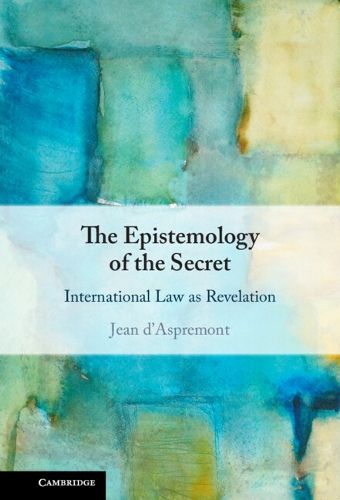Readings Newsletter
Become a Readings Member to make your shopping experience even easier.
Sign in or sign up for free!
You’re not far away from qualifying for FREE standard shipping within Australia
You’ve qualified for FREE standard shipping within Australia
The cart is loading…






In this groundbreaking work, Jean d'Aspremont undertakes the first study of the epistemology of the secret of international law, which is a specific intellectual posture whereby international law is considered to be replete with secrets that international lawyers ought to reveal. In addition to arguing that the epistemology of the secret of international law is everywhere at work in international legal thought and practice, d'Aspremont demonstrates why this posture must be scrutinized, given how much it enables certain sayings, thoughts, perceptions and actions while simultaneously disabling others, making it complicit with the worst forms of capitalism, colonialism, racism, bourgeois ideology, phallocentrism, virilism and masculinism. This book should be read by anyone interested in how international law came to do what it does and why it must be rethought.
$9.00 standard shipping within Australia
FREE standard shipping within Australia for orders over $100.00
Express & International shipping calculated at checkout
In this groundbreaking work, Jean d'Aspremont undertakes the first study of the epistemology of the secret of international law, which is a specific intellectual posture whereby international law is considered to be replete with secrets that international lawyers ought to reveal. In addition to arguing that the epistemology of the secret of international law is everywhere at work in international legal thought and practice, d'Aspremont demonstrates why this posture must be scrutinized, given how much it enables certain sayings, thoughts, perceptions and actions while simultaneously disabling others, making it complicit with the worst forms of capitalism, colonialism, racism, bourgeois ideology, phallocentrism, virilism and masculinism. This book should be read by anyone interested in how international law came to do what it does and why it must be rethought.